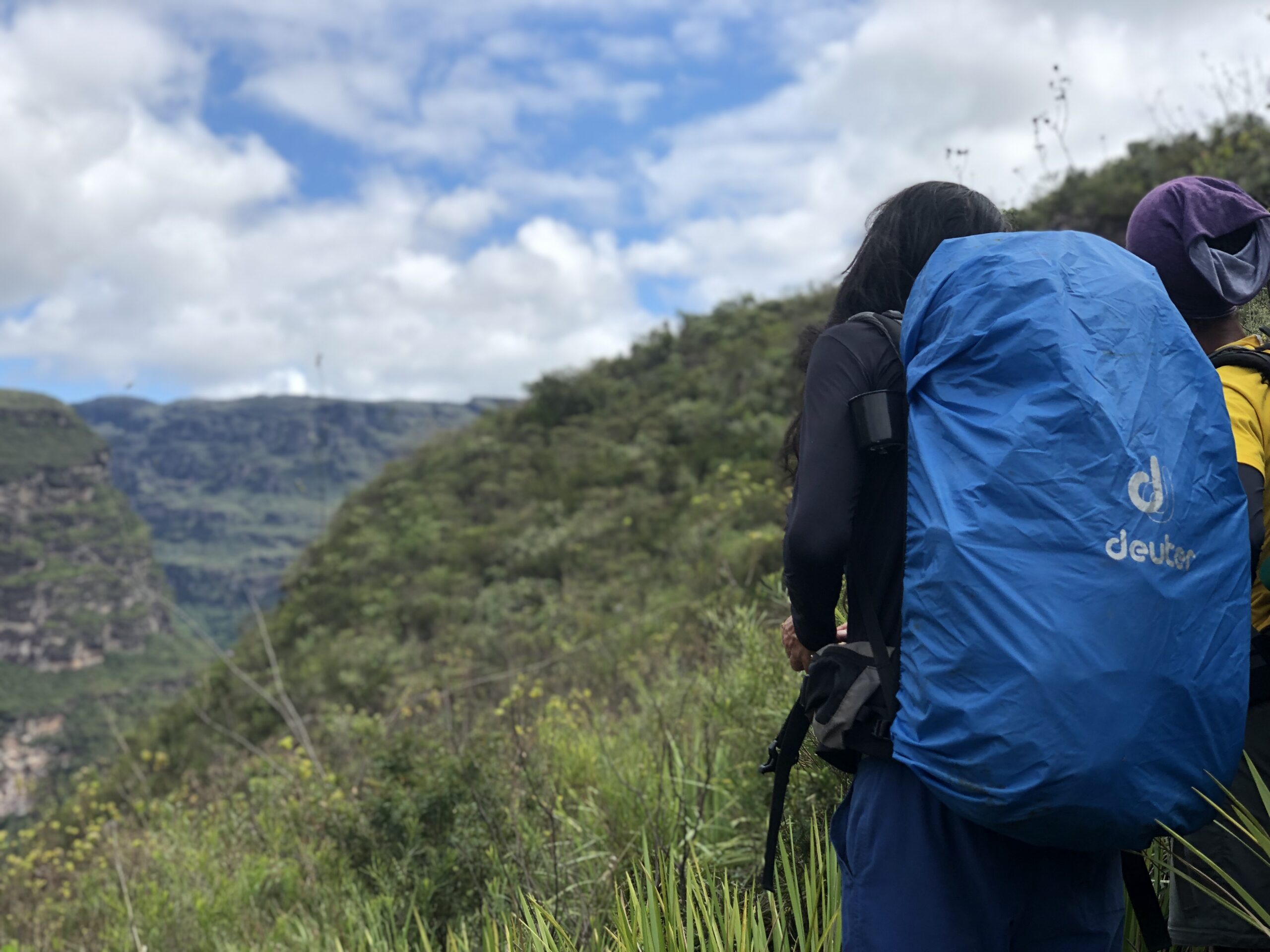Hold on… The idea of walking away from your favourite casino site might sound like sacrilege, right? Yet, self-exclusion programs exist because sometimes the smartest move in gambling is to step back, not double down. For many players, especially beginners, understanding how these tools work can be a game-changer—literally and figuratively.
Here’s the thing: responsible gaming isn’t just about setting limits—it’s about knowing when to pause. Self-exclusion programs provide a formal way to hit pause and protect yourself before losses spiral. They’re not a punishment, but a proactive safety net tailored for you. Watching your behaviour through the lens of this system can save both your bankroll and your peace of mind.

Why Self-Exclusion Is More Than Just Saying “No More”
Wow! It’s surprising how many players don’t realize self-exclusion programs can cover more than just a single casino account. On the one hand, it’s a personal commitment; on the other, it’s often part of a wider responsible gaming network monitored by regulators or independent organizations. So signing up for one might lock you out from multiple platforms simultaneously—powerful stuff.
Imagine you’ve noticed your losses creeping up and your playing sessions stretching longer than planned. You’re chasing those losses, which is a classic gambler’s fallacy in action. Self-exclusion programs act as a clear boundary, stopping you from playing impulsively. But be mindful: these programs usually require upfront registration and verification, involving Know Your Customer (KYC) checks aligned with Canadian anti-money laundering (AML) rules to ensure proper enforcement.
This system-level intervention can feel limiting at first, but it’s proven to reset a player’s habits effectively. In Canada, with various provincial gambling regulations, self-exclusion tools are mandatory for licensed operators, making them trustworthy and legally binding. But always check the terms, because some operators offer more flexible options than others.
Types of Self-Exclusion: Finding the Right Fit for Your Needs
Hold on… not all self-exclusion programs are created equal. Here’s a breakdown of common options and how they stack up:
| Type | Duration | Scope | Typical Availability | Pros | Cons |
|---|---|---|---|---|---|
| Short-term Self-Exclusion | 24 hours to 30 days | Single operator or platform | Most online casinos | Quick cool-off; easy reversal | May be lifted too soon impulsively |
| Long-term Self-Exclusion | 30 days to 6 months or more | Single or multiple operators | Provincial / licensed platforms | Stronger commitment; limits relapse | Requires formal reinstatement process |
| Permanent Self-Exclusion | Indefinite | Often broad (province-wide) | Government or industry-run | Maximum protection; no temptation | Irrevocable without appeal |
Seeing the options, it becomes clear that choosing the right exclusion depends heavily on your personal situation. A short-term break might help if you feel temporarily overwhelmed, but a long-term or permanent approach suits deeper issues. Notably, Canadian platforms regulated provincially (e.g., Ontario’s iGaming Ontario licensees) must offer at least short and long-term self-exclusion.
Integrating Self-Exclusion With Other Responsible Gaming Tools
Alright, check this out—self-exclusion isn’t a silver bullet on its own. It works best in tandem with other responsible gaming features like deposit limits, loss caps, session time reminders, and reality checks. Many reputable casinos, including the one you’ll find on their main page, provide a suite of such tools.
From personal experience, setting deposit limits can be a great first line of defence. But when these limits get ignored (usually under stress or tilt), self-exclusion steps in as a backstop. This layered approach reduces impulsive chasing and bankroll erosion, which often catches even experienced players off guard.
And while self-exclusion programs are designed as a barrier, they also invite reflection. Often, users who enter these programs report feeling relieved—almost like removing blinders. Over time, many find it easier to stick to limits and even return as more disciplined gamblers.
Quick Checklist: How to Use Self-Exclusion Effectively
- Assess your gambling habits: Be honest about signs of loss of control or stress.
- Choose the appropriate self-exclusion duration based on your current risk level.
- Register via your casino’s responsible gaming section, providing any required documentation.
- Complement self-exclusion with deposit and loss limits for a comprehensive approach.
- Use support services like Gamblers Anonymous or provincial help lines if needed.
- Keep documentation of your self-exclusion request and any correspondence.
Common Mistakes and How to Avoid Them
- Underestimating your urge to gamble: Many think short-term exclusions are enough — often they aren’t. Consider longer periods if relapse risk is high.
- Failing to inform others: Tell trusted friends or family to help you stay accountable.
- Ignoring linked accounts or other platforms: Gambling isn’t limited to one site; be aware of your activity across multiple operators.
- Not using complementary tools: Self-exclusion alone is less effective without deposit and loss limits.
- Not seeking professional help: Self-exclusion is a tool, not therapy. Counseling or support groups can address underlying issues.
Mini-FAQ: Your Self-Exclusion Questions Answered
How quickly does self-exclusion take effect?
Usually, exclusions become active within 24 hours of request, but some casinos implement them instantly. Check your casino’s policy for precise timing.
Can I gamble during the exclusion period through other sites?
That depends on the scope of the program. Provincial self-exclusion programs in Canada often cover all licensed operators in that jurisdiction. However, offshore or unlicensed sites may not participate.
What happens if I try to create a new account while excluded?
Casinos use KYC and identity verification to block excluded players. Attempting to bypass exclusions risks account suspension or banning.
Can I lift my self-exclusion early?
Generally, no. You must wait until the exclusion period expires and may need to complete a formal reactivation process, which can include counseling or cooling-off steps.
Do self-exclusion programs affect my bonuses or winnings?
Bonuses are usually suspended during exclusion. If you have ongoing bonus requirements, check with the casino’s terms; some may void bonuses during exclusion.
Case Study: How Self-Exclusion Helped “Alex” Regain Control
Alex, a casual player from Toronto, noticed his gambling sessions creeping from weekends to daily late nights. He’d chase losses with bigger bets, often ignoring preset deposit limits. Experiencing stress and impaired sleep, Alex took the bold step to enroll in a 3-month self-exclusion program through his casino’s responsible gaming portal.
During exclusion, he cut access to all provincial platforms and took advantage of counseling services offered through the program. The mandatory break helped reset his habits, and when the exclusion ended, Alex returned with strict deposit and session limits, significantly improving his bankroll management and emotional well-being.
How Dolly Casino’s Responsible Gaming Features Complement Self-Exclusion
Checking out the responsible gaming section on the main page, you’ll find a variety of player protection measures that work well alongside self-exclusion. These include customizable deposit and loss limits, session reminders, and direct links to Canadian support organizations like Gamblers Anonymous and GamCare.
The casino also employs robust KYC verification to reinforce self-exclusion enforcement, helping prevent banned players from re-registering under false identities. Their transparent approach means players can trust the system and feel safe taking the necessary breaks to protect themselves.
Importantly, Dolly Casino’s tools respect player privacy and offer flexibility in setting the level of restrictions—a hallmark of responsible operator practices within the Canadian regulatory landscape.
Summary Table: Comparing Responsible Gaming Tools and Their Functions
| Tool | Primary Purpose | Typical Duration | Effectiveness | Usage Tip |
|---|---|---|---|---|
| Deposit Limits | Cap money added to account | Ongoing, adjustable | Good first step | Set low, review monthly |
| Loss Limits | Limit losses per time frame | Ongoing, adjustable | Effective in bankroll control | Combine with deposit limits |
| Session Time Reminders | Alert on cumulative playtime | Per session | Helps reduce fatigue | Set to 60 mins or less |
| Self-Exclusion | Complete gambling break | From 24 hours to permanent | Most effective for behaviour reset | Use when other tools fail |
Putting it all together, self-exclusion programs are not just last resorts—they’re a cornerstone of responsible gambling strategies. Players should learn how to leverage these tools early, ideally before problems arise, to safeguard both their money and mental health.
Mini-FAQ: More About Self-Exclusion
Can I exclude myself from land-based casinos through online self-exclusion?
In some provinces, self-exclusion programs cover both online and physical venues (e.g., Ontario’s Voluntary Self-Exclusion Program). However, specifics vary, so verify local regulations.
Does self-exclusion affect my personal data?
Casinos comply with Canadian privacy laws, ensuring personal data used for self-exclusion is protected and only shared as needed for enforcement.
What if I feel tempted during exclusion?
Reach out to support groups or helplines immediately. Using complementary tools alongside self-exclusion improves success rates.
Remember, gambling should always be for entertainment and never viewed as a way to make money. If you feel your gambling is causing harm, consider using self-exclusion programs or contact organizations like https://www.gamblersanonymous.org/ga/ and provincial help lines. Always play responsibly. This content is intended for readers 18+ in Canada.
Sources
- https://www.greo.ca/Modules/EvidenceCentre/Details/self-exclusion-programs
- https://www.gamblersanonymous.org/ga/
- https://www.iac.gov.on.ca/en/Voluntary_Self-Exclusion.html
- https://www.gamcare.org.uk/self-exclusion/
About the Author
{author_name}, iGaming expert, has over a decade of experience in the online gambling industry, specializing in player protection and responsible gaming advocacy. Known for practical advice rooted in real player experiences, {author_name} helps demystify gambling tools and strategies for safer play.



